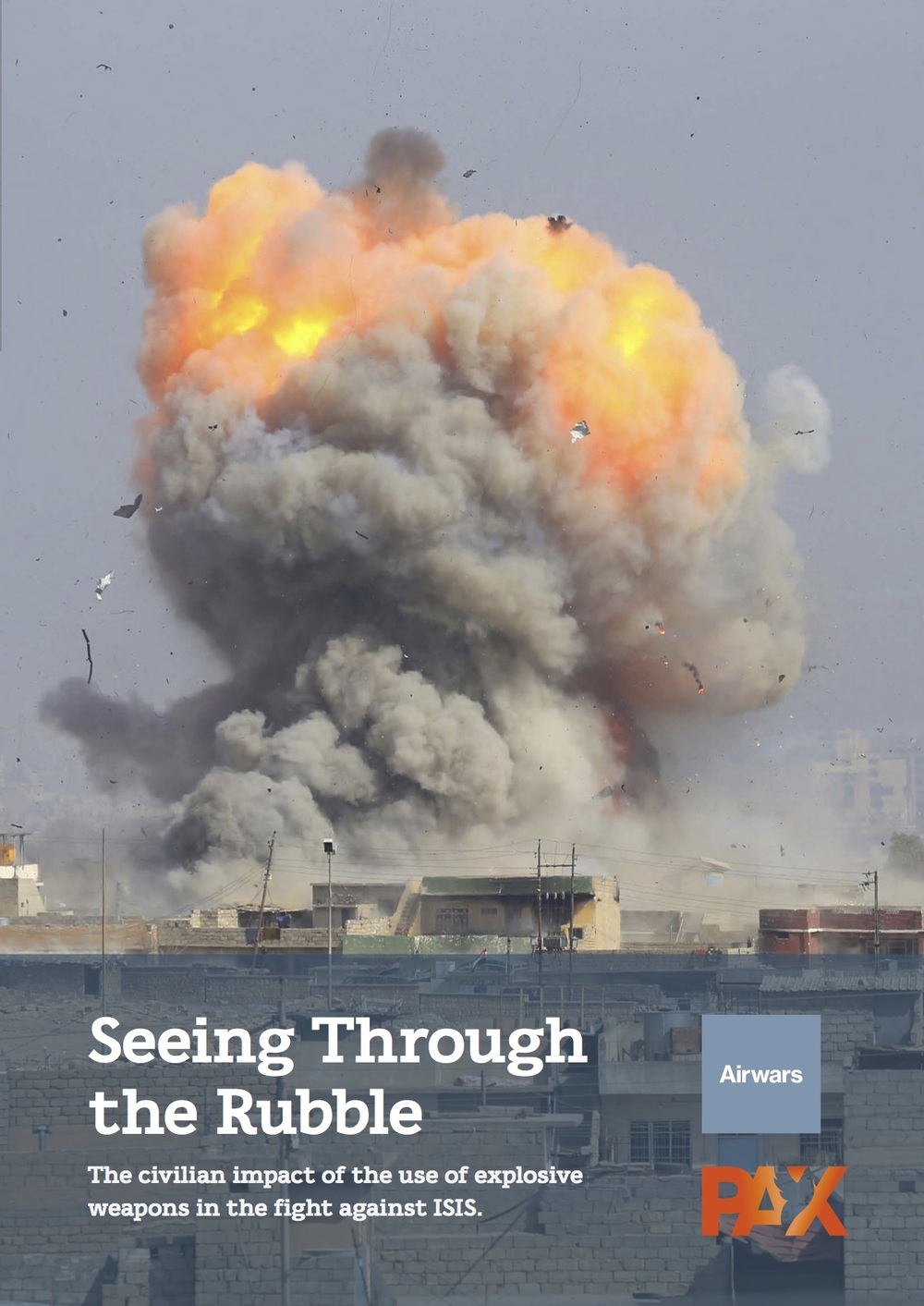Better protection of civilians is needed against the effects of the use of explosive weapons in populated areas. This is what PAX and the British organization Airwars found in their investigation into the use of explosive weapons in recent international military campaigns in the Iraqi cities of Mosul and Hawija, and in the Syrian city of Raqqa.
These weapons cause dire and long-lasting harm, according to the report, “Seeing through the rubble: The civilian impact of the use of explosive weapons in the fight against ISIS”.
“When bombing and shelling take place in towns and cities, civilians are killed and suffer life-changing injuries, and vital infrastructure like hospitals and schools are destroyed,” says Roos Boer, Humanitarian Disarmament Programme Leader at PAX and co-author of the report. “We need to see states agree to stronger rules that will stop these urban attacks.”
Long-lasting harm
Explosive weapons kill and injure people upon use, and often have an impact that extends far beyond the time and place of the attack. People are displaced when their homes are destroyed; people lose access to electricity and running water when basic infrastructure is destroyed; people also lose access to health care and education, and sanitation gets worse.
Two nations particularly affected by recent urban fighting, characterised by the use of heavy explosive weapons, are Iraq and Syria. While significant civilian harm and destruction of property have resulted from the actions of many state and non-state actors, the primary illustrative focus of the report is on military actions by the US-led International Coalition against ISIS
Civilians need better protection
“In highlighting the negative consequences for civilians of recent Western military interventions at Mosul, Hawijah and Raqqa, our new report demonstrates the need for all military actors to develop stronger operational standards with regard to explosive weapons in populated areas,” says Chris Woods, director of Airwars and co-author of the report. “Large scale civilian harm during city battles is a terrible reality – and greater international safeguards are urgently needed.”
More than a hundred states, successive Secretaries General of the United Nations and the International Committee of the Red Cross have publicly recognised the civilian harm caused by explosive weapons in populated areas. In the last decade, states have come together on multiple occasions to discuss an international political commitment to prevent the widespread civilian harm caused by the use of explosive weapons in populated areas. Final negotiations are scheduled to resume shortly, once restrictions resulting from the COVID-19 pandemic allow
Recommendations
In order to better protect civilians from the use of explosive weapons in populated areas, the authors of the report call upon states to integrate the direct, indirect and reverberating effects of the use of explosive weapons into their military planning and operations and to support an international declaration that:
- Recognises and describes the full extent of the civilian harm caused by explosive weapons in populated areas;
- Commits states to avoiding the use of explosive weapons with wide area effects in populated areas, and to developing national policies and procedures to this end;
- Commits states to increasing efforts on collecting and sharing data on the use of explosive weapons in populated areas, as well as tracking civilian harm from the use of Explosive Weapons In Populated Areas (EWIPA), including data segregated by age, sex and disability where possible;
- Commits states to collecting and publicly sharing information about civilian harm incidents, assessments and investigation processes;
- Commits states to providing victim assistance to those affected by the use of explosive weapons in populated areas.
Download Seeing through the rubble




